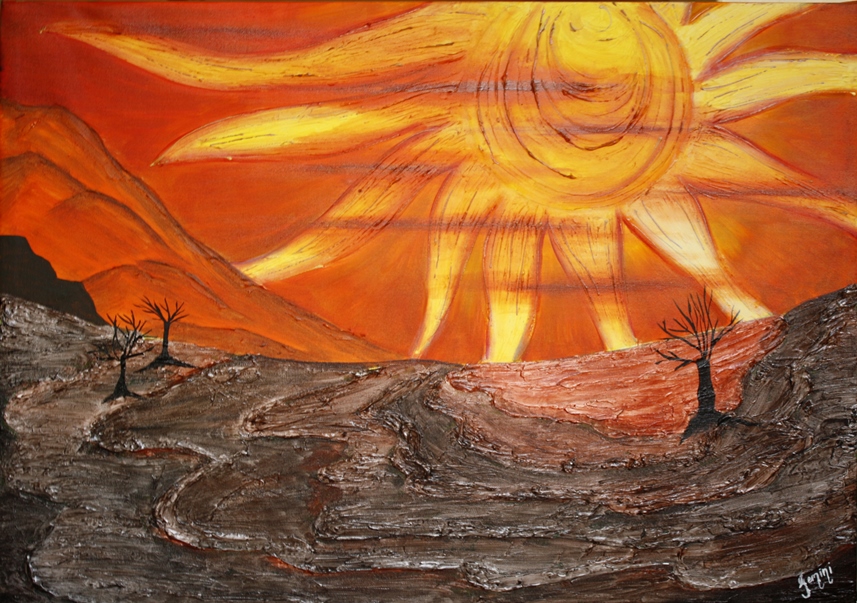By Kevin James Moore
Published April 10, 2010
Moses Lwanga fled Uganda as a boy and returned as a Harvard University-educated doctor to a country torn asunder by war. Lwanga strove to be a pacifist but the violence he witnessed overwhelmed him and he turned to violence himself. This man in conflict is the protagonist of Unknown Soldier, a comic by writer Joshua Dysart and artist Alberto Ponticelli. KEVIN JAMES MOORE reports.
Easy Kill, volume II of Unknown Soldier, was released in late March 2010 by DC Comics’ Vertigo imprint and the series has been nominated for top industry awards and has garnered stunning reviews from the mass media, including The New York Times, the Huffington Post, BBC, and Reuters.
Karen Berger, executive editor of Vertigo, says what drew the publisher to the comic, “What made Unknown Soldier different was that it was talking about a region in Africa that’s not just underreported by pop culture’s standards but by the mainstream media’s as well.”
“I found Joseph Kony [leader of the Lord’s Resistance Army (LRA)] during [a] particular phase of personal research and he really captured my attention,” says Dysart of how the idea to write about the conflict in Uganda happened. “Not only was he such an extreme character, but it was crazy to me that this conflict had been going on since 1986 and I, a relative news junky, had never heard of it.”
When Lwanga arrives back in Uganda and he witnesses the terror being inflicted by Joseph Kony’s LRAÂ “a real guerilla group engaged in violent campaigns in Uganda” and the Uganda Defence Forces, he struggles to keep true to his pacifist ideals.
“Moses has been colonised and is literally at war with himself to find some semblance of a post-colonial identity,” Dysart said. “He is broken and frayed and struggling to be a better man. He is a pacifist with a gun.”
Lwanga embodies an inner debate for Dysart between the pacifist ideal and the notion that violence might be necessary to counter violence. “This debate becomes very complicated in a region mired in two decades of war,” he says.
RELATED: The Status of Contemporary Art in Africa
As Dysart’s awareness of the conflict grew, so did his motivation for writing the comic.
“I wish I could say I saw a trend coming or that I was moved to speak about this part of the world to a larger audience, but it really just started with the need for work,” says Dysart. “But once we got the go-ahead and I sat down to tackle it, my whole relationship with the reality of the situation suddenly changed and I began to become very emotionally engaged with the real life situation and the millions of people who were suffering through it.”
In early 2007 Dysart travelled to Uganda to see with his own eyes what he was going to write about in his comic. “I knew there was no way I could call myself a responsible human being and write about these people, the Acholi [an ethnic group in northern Uganda], and their plight without going to Acholiland and speaking with them and getting to know them,” Dysart says. “Simply Googling a thing, or reading books on it, can’t give you the sense of texture of an event, or the cultural differences of a people, or sensitize you to their plight to such a degree that you feel almost spiritually obligated to avoid as much reduction as possible in telling their story.”
Avoiding the exploitation of the conflict is just as important as telling the story for Dysart. “If there’s one thing I hope I never do, it’s exploit a real life situation creatively.” Berger also recognizes this fine line, “[The] most challenging and unique thing about the book is how it’s trying to walk a tight rope between its political consciousness and its desire to not be exploitative over a real situation with very real victims while still telling a story that still manages to shock, surprise and entertain on a monthly basis.”
RELATED: How Not To Treat Customers
Dysart explains why a comic is a very effective medium for telling such stories: “[In a comic] we can have a lot more courage to be honest and also somewhat controversial than an expensive TV show, or a movie, or a videogame.”
Dysart describes comics as a hip and low-cost visual medium that provides the freedom to be courageous and disturbing.
“That’s something you don’t get in a war videogame,” he says. “You don’t have to play the old widow hiding herself and her child from rapist soldiers while scrounging for food and dying of thirst. You don’t have to play a displaced refugee with no sense of future and no hope of normalcy. “But that’s what Unknown Soldier is about to Dysart. “It’s about what war does to people; both military and civilian.”
For Dysart, Unknown Soldier is his greatest creation to date, which has changed the lens in which he views people. What is important to Dysart is changing how children see the world as well.
“If I can get 17, 18, 19 year old kids to stop and think, “wow” the world is a really big and amazing place with so many cultures and so many problems and so much beauty in the face of adversity”.” That possibility of making just one kid aware of what is happening in the world excites Dysart and brings his comic to a new level, “that doesn’t have anything to do with Africa. That has to do with what it means to be human.”
A MediaGlobal Article.



